Amid Tensions, Azerbaijan Closes Iran’s Cultural Office In Baku
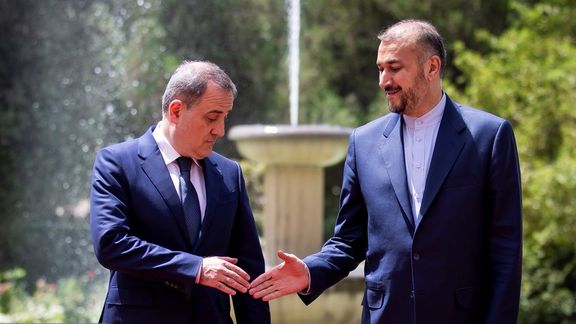
As tensions simmer between Iran and Azerbaijan, Baku has closed the Islamic Republic’s cultural attaché office in the city.

As tensions simmer between Iran and Azerbaijan, Baku has closed the Islamic Republic’s cultural attaché office in the city.
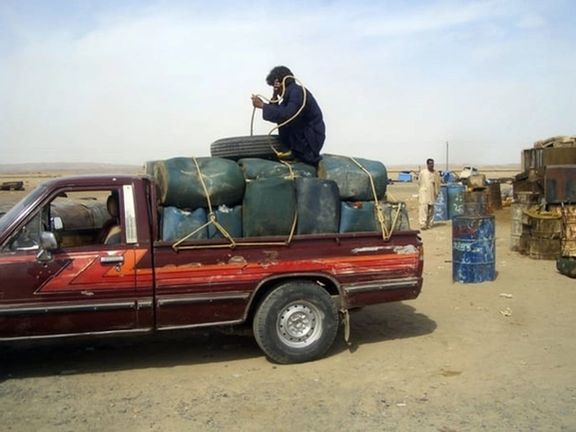
Pakistan has passed a special order to allow barter trade with Afghanistan, Iran and Russia for certain goods, including oil and gas, the Ministry of Commerce said Friday.
Left with barely enough foreign exchange reserves to cover one month's imports, Pakistan's government is desperately trying to manage a balance of payments crisis and bring inflation under control after it hit a record of nearly 38% last month.
The government order, called the Business-to-business (B2B) Barter Trade Mechanism 2023 and dated June 1, lists goods that can be bartered. State and privately owned entities would need approval to participate in the trade mechanism.
Although the United States has designated third-party sanctions on those buying Iranian oil, a barter deal might be overlooked by Washington. China buys large quantities of illicit Iranian crude exports with little push-back by Washington.
After Pakistan's first purchase of discounted Russian oil in April, petroleum minister Musadik Malik told Reuters that Pakistan would only be buying crude, not refined products under the deal.
There was no confirmation about how the payment would be made. But Malik said purchases could rise to 100,000 barrels per day (bpd) if the first transaction went smoothly.
Last year, Pakistan imported 154,000 bpd of crude oil, little changed from 2021, data from analytics firm Kpler showed.
In May, Pakistan Petroleum Dealers Association complained that up to 35% of the diesel sold in Pakistan had been smuggled from Iran.
Pakistan's government has also ordered a clamp down on smuggling of flour, wheat, sugar, and fertilizer to Afghanistan.
Report by Reuters
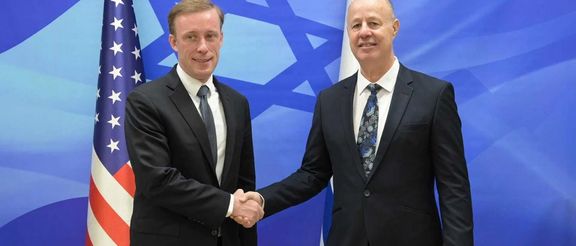
Top US and Israeli national security officials met in Washington Thursday and discussed “enhanced coordination” to prevent Iran from acquiring a nuclear weapon.
Assistant to the President for National Security Affairs Jake Sullivan hosted Israeli National Security Advisor Tzachi Hanegbi and Minister of Strategic Affairs Ron Dermer at the White House to continue high-level discussions following up on the March US-Israeli Strategic Consultative group that had focused on Iran’s nuclear program and “ways to counter threats from Iran and its proxies.”
The meeting followed reports and speculations in recent days that Washington was discussing some possible deals with Iran to secure the freedom of American hostages in Tehran in exchange for expediting the release of Iranian funds frozen in South Korea and Iraq.
A State Department official Thursday told Iran International that US policy has not changed in regard with Iran’s nuclear program and President Joe Biden is “fully committed” not to ever allow Iran to acquire nuclear weapons. The official said that the United States “in full coordination with its allies and partners” is preparing all options to deal with Iran’s nuclear program.
However, the spokesperson reiterated that the administration continues to believe in diplomacy as the best way to achieve this goal, although talks to revive the JCPOA accord are not on Washington’s agenda.
However, the state of US-Israeli relations might not be so clear. Israel’s Channel 13 television reported that US Secretary of State Antony Blinken has called off a planned visit to Israel next week amid tensions between Jerusalem and Washington over Iran.
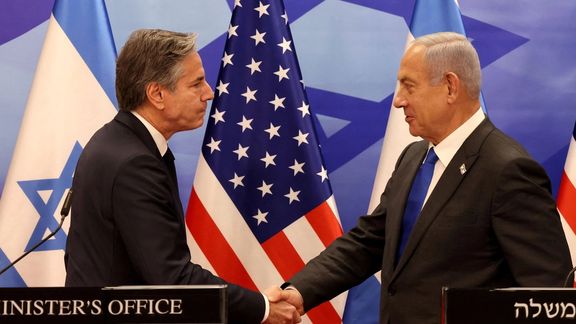
At the same time, Blinken after a meeting with British, French and German foreign ministers tweeted that “I also underscored U.S. concerns about Iran’s nuclear escalation.”
Israeli Prime Minister Benjamin Netanyahu separately in a video message said, "I have heard all of the reports about Iran. I have a sharp and clear message for both Iran and the international community: Israel will do whatever it needs to do to prevent Iran from obtaining nuclear weapons."
Clearly, Israel is demanding tougher responses to continued Iranian nuclear build-up. Whether Jerusalem is insisting on a military attack at this point is not clear, but tougher diplomatic and economic measures are certainly among its demands from Washington.
UN’s nuclear watchdog, the International Atomic Energy Agency, IAEA, issued a report to its members states this week that reportedly said Iran now has 114 kilograms of uranium enriched to up to 60-percent – an increase of 26.6 kg from the previous quarter. This can be easily further enriched to 90-percent purity needed for nuclear weapons in around two weeks.
The IAEA also reported that Iran has shown some flexibility regarding the Agency’s demands. This could be an effort by Tehran to forestall censure at the IAEA board meeting this month. One of Israel’s demands might be a strong condemnation of the Islamic Republic by the board.
About 42 kg of uranium enriched to 60-percent is what the IAEA calls a "significant quantity", defined as "the approximate amount of nuclear material for which the possibility of manufacturing a nuclear explosive device cannot be excluded".
Although Washington says there is no evidence that Iran has decided to proceed and build a weapon, in testimony to Congress in March, Gen. Marky Milley, chairman of the Joint Chiefs of staff, warned that Tehran could “field” a bomb in several weeks, if it made the crucial decision.
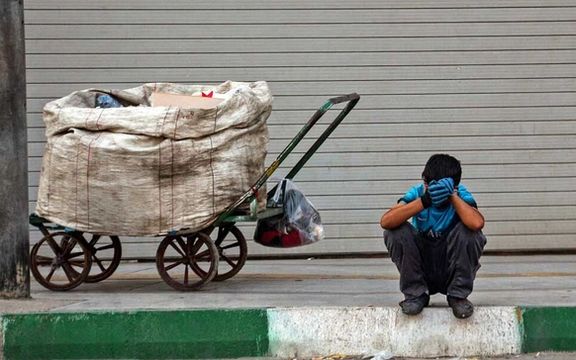
A reformist figure widely known in Iran as a regime apologist has acknowledged that the Islamic Republic is entangled in a quagmire of problems and crises.
At the same time, an Iranian academic has asserted that "ideology" is the root cause of the country's problems.
Hamid Reza Jalaipour told Entemad Online website that Iran is currently entangled in a web of crises as most Iranians see no promising prospect for the country's future. "The elites are thinking of leaving the country for good. The youths evade marriage and those who are married do not want to have children as many are affected by widespread poverty," said Jalaipour.
According to the politician, the Islamic Republic is facing all sorts of financial, environmental, social and international crises, which it is not capable of resolving. The government has failed to hold free and fair elections. On the other hand, the people have not managed to convince the government through their protests that its strategic policies are wrong, he said.
Jalaipour added: "The government is in a political impasse and the people are painfully struggling to find a way out. It is as though the regime is holding a grudge against the people. As a result, society is in a state of political suspension."
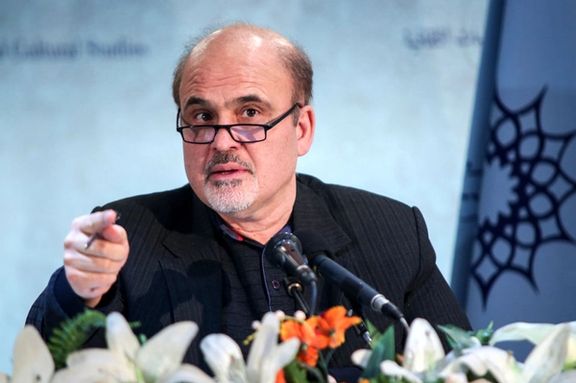
He added that in the meantime, four different political narratives are being furthered in Iran by different groups. However, none of them is powerful enough to confront the country's crises.
The first narrative is one of "unified government" or consolidation of power by limiting elections to contests among conservatives and restricting reformists and moderates' political participation. This was pushed through by hardliners in the past 3 years and has failed, angering the people.
The next narrative is about bringing "reforms." This requires a free and fair electoral system which is non-existent in Iran.
However, Jalaipour failed to say why real elections have not been allowed, probably because he did not want to annoy the Supreme Leader Ali Khamenei and Revolutionary Guards, who have been ‘engineering elections in Iran at least since 2005.
The third narrative is one of "transition" from the current system by holding a referendum on key issues, and the fourth narrative is "regime change." The regime strictly rules out the idea of transition and is prepared to shed blood to prevent regime change. Jalaipoir insisted that none of these four narratives are able to solve the country's problems. The only solution is empowering the middle class. However, he stated that the economic crisis during the past decade has left no middle class as most sociologists and economists maintain.
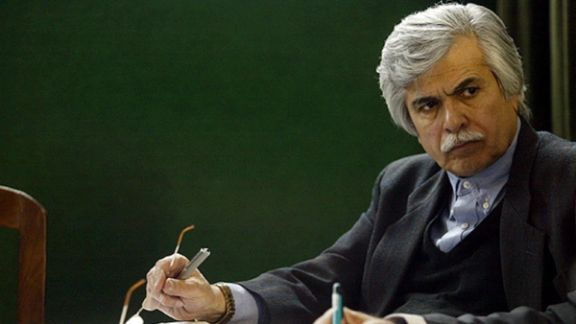
Meanwhile, Iranian academic Mahmoud Jamsaz told Rouydad24 website in Tehran that Iran's chaotic economy which is based on giving concessions to well-connected individuals and is alien to the idea of development. He maintained that the root cause of Iran's problems is the ideological political system, which has effectively ruined the country's economy and international relations. This system, said Jamsaz, is against economic development as it does not serve the interests of the privileged few.
According to Jamsaz, the country is struggling in a quagmire created by rising inflation. It is interesting that both Jalaipour and Jamsaz likened the country's situation to a quagmire in which Iranians struggle for survival.
Jamzas said: "The quagmire is deeper and more turbulent in the areas of financial matters and housing. The annual inflation figures are unbelievable, but still many Iranians believe that actual inflation is way higher than the figures announced by the government. Even the government's own Planning and Budget Organization questions the validity of those figures."
He said, "one of the main problems of Iran's economy is that it is at the service of the government and is meant to serve the ideological interests of the regime. So, the government prefers its ideological interests to national interests." He added that the government is constantly deceiving itself to justify its wrong policies. In such a situation, even the revival of the JCPOA and lifting of the sanctions cannot resolve the crisis. He reiterated: "Ideology cannot solve the country's problems because ideology is the problem."

A Norway-based human rights group says Iran executed 142 prisoners in May, hitting a dark record even for the Islamic Republic.
The Oslo-based Iran Human Rights Organization announced in its latest report on Thursday that the figure is the highest monthly executions since 2015, averaging five people hanged each day across the country during May.
According to the report, the regime has executed at least 307 people in the first five months of 2023, indicating a 76-percent year on year rise.
In addition to the first public execution of the year, 78 people were executed for drug-related charges, about 30 of whom were from the Baluch minority, perhaps the most persecuted community in Iran.
According to the data collected by the IHR, 59 percent – or 180 people -- of the 307 executions so far in 2023 were hanged over drug-related charges.
“As well as increasing drug-related executions, the Islamic Republic has also expanded the scope of charges it uses to carry out the death penalty by executing two people for blasphemy charges and one for adultery,” added the report.
The group reiterated warnings about the escalation of executions, calling on the international community “to stop the Islamic Republic’s killing machine with a strong reaction and practical punitive steps.”
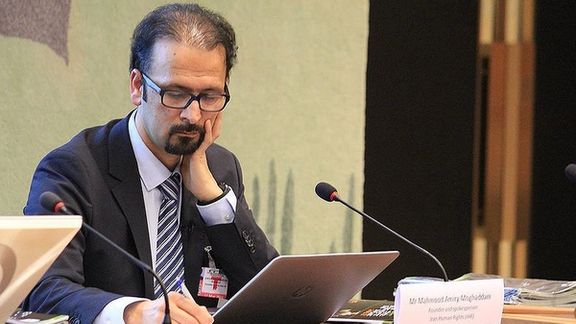
IHR Director Mahmood Amiry-Moghaddam told Iran International, “The purpose of the Islamic Republic’s intensification of arbitrary executions is to spread fear in society to intimidate people against holding further protests, thus prolonging its rule.”
He added that “if the international community doesn’t show a stronger reaction to the current wave of executions, hundreds more will fall victim to their killing machine in the coming months.”
Amiry-Moghaddam noted that the figures announced by the group are likely much lower than the real number of executions due to the secretive nature of the regime.
He noted that the Islamic Republic is not executing people to fight crime but to guarantee its rule as the regime is facing the boldest challenge it has ever faced since its establishment. “We are talking about a regime struggling with one of its biggest crises ever; it cannot solve the problems therefore it has to intimidate people to prevent further protests, and execution is the biggest tool for intimidation” he said.
Parastou Fatemi, a human rights expert, also believes that the rise in executions is a tactic to push back protesters from streets to their homes, saying that whenever the regime faces street protests, it expedites the execution processes to instigate fear among people.
On Monday, Islamic Republic Judiciary Chief Gholamhossein Mohseni Ejei defended the hanging of protesters, saying "The [death] sentences of those [protesters] who were/are supposed to be executed for their crimes during the riots have either been or will be carried out without any consideration.”
The Islamic Republic has intensified its killing trend in recent weeks, fueling further protests across the country. At least 259 Iranians have been executed since January alone, according to the United Nations.
Amid a spike in executions since late April, on May 19, authorities arbitrarily executed three tortured protesters, Majid Kazemi, Saeed Yaghoubi and Saleh Mirhashemi who were unjustly convicted and sentenced to death in Isfahan (Esfahan).
The deaths brought to at least seven the number of protesters hanged since nationwide protests broke out in September 2022 following the death in custody of 22-year-old Mahsa Amini. The unrest posed the biggest internal challenge to the Islamic Republic since its establishment in 1979.
Earlier in March, Amnesty International said at least seven individuals in Iran face the death sentence in connection with protests, while dozens of others are at risk of being sentenced to death.
So far, around 750 civilians have been killed by security forces and at least 30,000 arrested. While many have been released, around 1,500 face criminal charges, and at least 80 detainees face the death sentence for the “moharebeh” and “corruption on earth”, Islamic-Arabic terms meaning to go against the will of God. Both carry the death penalty.
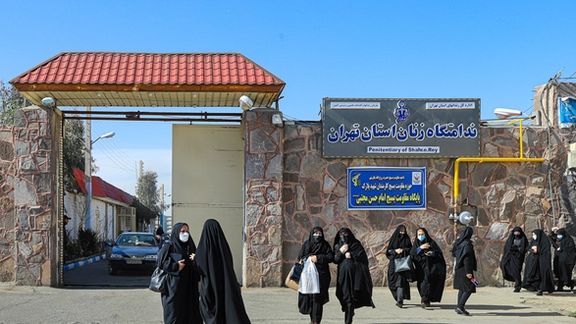
Iran’s judiciary says diplomats from 28 countries and representatives of international organizations have visited the women's ward at the notorious Gharchak (Qarchak) Prison south of Tehran.
Mizan, the Judiciary News Agency, reported Thursday that a delegation of 36 diplomats visited the penitentiary on Wednesday without citing the names of either the organizations or countries represented.
The visit comes about a month after the transfer of political prisoners from the prison and a few days after several detained female protesters revealed sexual assaults in Gharchak and Evin prisons.
"The women's penitentiary was chosen so that foreign guests can see the unique and diverse services and facilities for female inmates and get a correct understanding of the principles of Islamic prisons," claimed Kazem Gharibabadi, Secretary of Iran's High Council for Human Rights.
Pointing out that about 700 women are incarcerated in Gharchak prison, Gharibabadi claimed that women make up about 2.5% of Iran's prison population, which indicates "a very low rate of crime among Iranian women compared to the global rate."
In the past few days, several Iranian female political activists have spoken up about prison guards forcing them to strip naked, even in front of cameras, to humiliate them. Others have spoken of full sexual assault and rape.
Anti-compulsory hijab activist, Mozhgan Keshavarz, told Iran International that she was first strip-searched after her arrest in April 2019 and detention at Vozara Detention Center in Tehran where the 22-year-old Mahsa Amini died in custody on September 16 last year.
Since her revelations, other female activists including Zeynab Zaman, Nasibeh Shamsaei, Shaparak Shajarizadeh and actress Mahnaz Afshar who were subjected to the same humiliation have also come forward with their stories.
Iran’s IRNA news agency cited an unnamed official as saying that the closure of the cultural advisor’s office is due to the “recent disagreements”between the two countries.
"The Islamic Republic of Iran owns many properties in Baku, and the recent actions are one-sided and hasty excuses by the Azerbaijani side to take the properties that belong to the government of the Islamic Republic of Iran,” the official said.
Claiming that such differences can be resolved through dialogue, he played down the issue which saw iran’s diplomat sent back to Tehran and said the move was “irrational” and “emotional”.
This week, a report, claimed by an opposition group to have been hacked from the Iranian presidency servers, showed that the government is eying ways to redefine its relations with Azerbaijan.
It is the latest incident in a series of tensions which have been rising between Iran and Azerbaijan since November 2022 when both sides accused each other of engaging in terrorism and espionage in the other’s territory.
Iran has suggested Azerbaijani involvement in the October 26 attack in Shiraz claimed by the Islamic State group (Isis-Daesh) and, also accuses Baku of harboring Israeli intelligence and military elements that plan to use its territory in a possible attack against Iran’s nuclear facilities.
The two countries in early May expelled each other’s diplomats after incidents that Baku also dubbed as "terrorist attacks". These included a gunman’s in Tehran in January after which Baku shut down the embassy and an in March, who is an outspoken critic of the Islamic Republic.